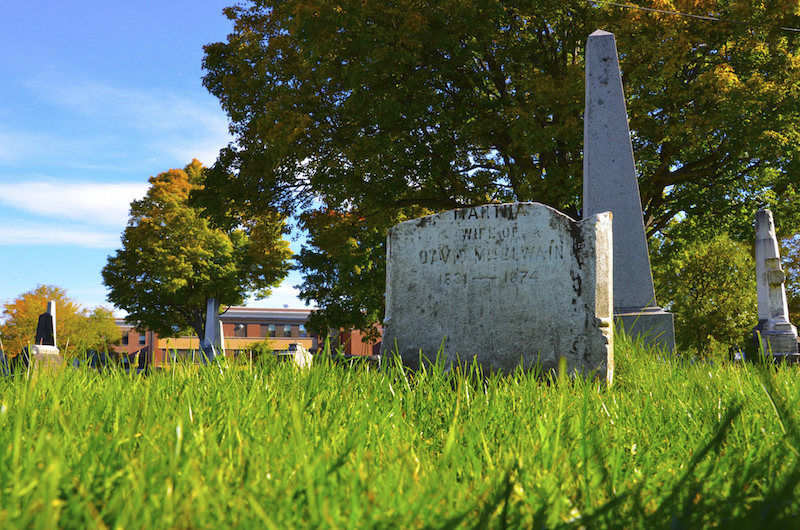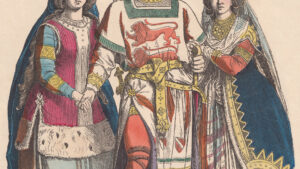On April 23, 2011, at 5 p.m., a group gathered at a wedding venue called Houston Station in Nashville to witness the joining of a young man and a young woman in the bonds of marriage—John and Amanda. The groom’s two brothers stood in together as best men, and the bride’s college roommates were there as maid and matron of honor. The bride’s father walked her down the aisle. I officiated.
On that day, the young couple spoke vows to one another in our hearing. They promised to take each other as loving and faithful spouses, for better or for worse, in plenty and in want, in sickness and in health, in joy and in sorrow, to love and to cherish, as long as they both shall live.
Promise, Not Circumstances
Wedding vows confess that we do not know what is coming in this life. They take us out to the edges of possible sorrows, struggles, and losses. When people take these vows, they affirm that marriage is a relationship based on a promise, not on circumstances. The couple tells each other that though both sickness and health will come, as will both joy and sorrow, they will honor and cherish one another until death separates them. With their wedding vows, the couple says, “I do not just give you everything I have. I give you myself—all of me for all of our days together.
None of us knows how many days we have. As this young couple danced out of the wedding hall to “Signed, Sealed, Delivered, I’m Yours,” it felt like they were dancing their way into a seemingly limitless future of two lives made into one. And though we all hoped for them to have many, many years together, the vows affirmed that their marriage was never founded on the promise of time, but on devotion to one another, come what may.
Vows Kept
During the summer, Amanda discovered she had an advanced form of leukemia. Ten months later, during Holy Week, she died, leaving behind her husband and their 2-year-old son. Her husband asked if I would say a few words at her funeral, remembering their marriage.
I was struck by a couple of thoughts. First, this was new territory for me as a pastor. I had officiated weddings and performed funerals, but never had I done both for the same person. Second, this couple kept their vows under especially difficult circumstances. I deeply admired their courage, and I hope my marriage, when it ends, will end with vows kept.
I had officiated weddings and performed funerals, but never had I done both for the same person.
On the Saturday of Holy Week—the only full day in which the dead body of our Lord Jesus Christ lay in a tomb—I stood in an old chapel with the groom and his family in front of me and his wife’s casket behind me. I spoke these words:
John, I hate cancer. I hate what it does to those who have it, and to those who love them. But I am honored to stand here with you and your family and friends to tell you how proud I am of both you and Amanda for the ways you have honored your vows to one another. Your love for her has been a picture of Christ’s love for his people. And her love for you has been the same.
I am proud of Amanda for the way she let us into her suffering. This was one of her gifts to us. Her strength, humor, courage, love for you and Rowan, and her love of life itself has been evident in the words and pictures she gave us along the way.
I am also proud of her for the way she bound her suffering to her faith in Christ. She did not give up—and we know this is not because of a strength that was hers alone. This was evidence of the Holy Spirit living in her and through her because of her faith in Christ. That same Lord lives even still, and will forever. And because Amanda’s faith was in him, though her body has died, Amanda has not perished. She lives in the presence of the Maker and Lover of her soul. And she will forever.
John, you remain here. For now.
I was the man the Lord appointed to pronounce you and Amanda husband and wife at your wedding. Today at her funeral, here is what I want to say to you. John, you have been a loving and faithful husband, for better or for worse, in plenty and in want, in sickness and in health, in joy and in sorrow. You loved and cherished Amanda as long as you both lived. I know that love will continue.
I am proud of the way you and Amanda have honored your vows out here at the edges of the hardest parts of promises you made. There are few things more beautiful and sobering than honored wedding vows at a funeral. You, friend, kept your vows. And so did she.
John, thank you. Well done. I’m so sorry. I love you. Blessed be the name of the Lord.
Involved in Women’s Ministry? Add This to Your Discipleship Toolkit
 We need one another. Yet we don’t always know how to develop deep relationships to help us grow in the Christian life. Younger believers benefit from the guidance and wisdom of more mature saints as their faith deepens. But too often, potential mentors lack clarity and training on how to engage in discipling those they can influence.
We need one another. Yet we don’t always know how to develop deep relationships to help us grow in the Christian life. Younger believers benefit from the guidance and wisdom of more mature saints as their faith deepens. But too often, potential mentors lack clarity and training on how to engage in discipling those they can influence.
Whether you’re longing to find a spiritual mentor or hoping to serve as a guide for someone else, we have a FREE resource to encourage and equip you. In Growing Together: Taking Mentoring Beyond Small Talk and Prayer Requests, Melissa Kruger, TGC’s vice president of discipleship programming, offers encouraging lessons to guide conversations that promote spiritual growth in both the mentee and mentor.

































